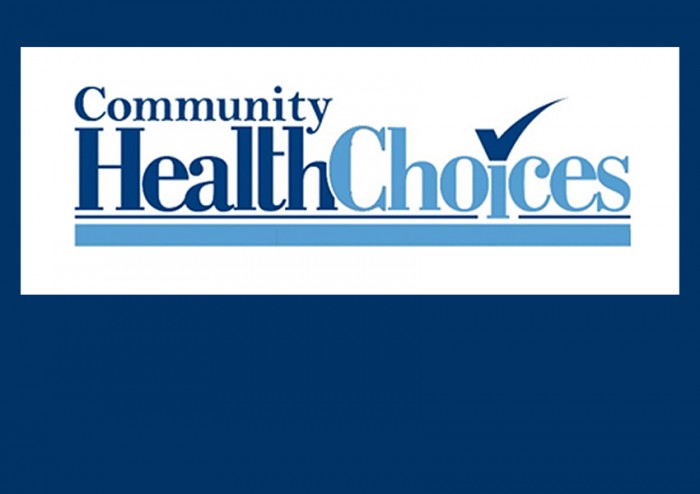Melissa Dehoff
DHS Releases Proposed CHC Waiver Renewal
The Department of Human Services (DHS) has released the Office of Long-Term Living’s (OLTL’s) proposed Community HealthChoices (CHC) waiver renewal for public review and comment in the August 17, 2019 Pennsylvania Bulletin. DHS proposes to renew the CHC waiver with an effective date of January 1, 2020 in order to be aligned with the calendar year.
Some of the proposed changes to the CHC waiver include:
- Revise the Residential Habilitation service definition by modifying the number of hours that are defined as a day unit from a minimum of 12 hours to a minimum of 8 hours.
- To the service definitions of Job Finding, Job Coaching, Employment Skills Development, Career Assessment and Benefits Counseling, add language that Office of Vocational Rehabilitation (OVR) services are considered to not be available if OVR has not made an eligibility determination within 120 days; and add language to address when employment services through the CHC waiver can be provided should OVR close the order of selection, thereby creating a waiting list for OVR services.
- Modify the qualifications for Service Coordinators and Service Coordinator supervisors.
- Clarify that, if a CHC Managed Care Organization (MCO) identifies that a participant has not been receiving services for 5 or more days, and if the suspension of services was not pre-planned, then the CHC-MCO must communicate with the participant to determine the reason for the service suspension within 24 hours. If the participant’s health status or needs have changed, then the CHC-MCO must conduct a comprehensive needs reassessment of the participant’s needs within 14 days of identifying the issue.
- Add that an emergency back-up plan must be included in the Person-Centered Service Plan.
- Remove and modify language to reflect that the CHC waiver will be fully operational Statewide as of January 1, 2020.
- Update language to reflect that the Department utilizes IDEMIA as the data system to process fingerprint-based Federal Bureau of Investigation criminal record checks.
- Update the OLTL bureau names and responsibilities.
The proposed CHC waiver renewal and a summary of all revisions are available for review here. Written comments regarding these proposed revisions will be accepted through close of business on September 16, 2019 and should be sent to the Department of Human Services, Office of Long-Term Living, Bureau of Policy Development and Communications Management, Attention: CHC Waiver Renewal, P.O. Box 8025, Harrisburg, PA 17105-8025. Comments may also be submitted to the Department at [email protected].
CY 2020 Outpatient Prospective Payment System Proposed Rule Released
On August 9, 2019, the Centers for Medicare and Medicaid Services (CMS) released the calendar year (CY) 2020 outpatient prospective payment system (OPPS) proposed rule. In addition to the proposed changes to the amounts used to determine the Medicare payment rates, this proposed rule updates and refines the requirements for the hospital outpatient quality reporting program. Included in this proposed rule is a provision that would require inpatient rehabilitation facilities (IRFs) and other hospitals to post certain payment information, which seeks to increase price transparency by requiring all hospitals in the United States to make hospital standard charges available to the public. It would also publish patients’ out-of-pocket costs for scheduled health care services. The rule also proposes to implement site-neutral payment rates for outpatient hospital physician visits that would align the payment amount for non-hospital physician visits. Comments on this proposed rule will be accepted through September 27, 2019. Contact Melissa Dehoff, RCPA Director of Rehabilitation Services, with questions.
CHC Fact Sheet on Complaints and Grievances Issued
Community HealthChoices (CHC) is Pennsylvania’s mandatory managed care program for individuals who are dually eligible for Medicare and Medicaid, and individuals 21 years of age or older with physical disabilities who receive long-term services and supports through Medicaid. CHC is currently live in the Southwest and Southeast part of the state. The remainder of the state will transition to CHC on January 1, 2020.
CHC participants have protections if they do not agree with a CHC managed care organization’s (CHC-MCO’s) decision to deny, decrease, or approve a service or item different from what was requested. Participants can also voice dissatisfaction with their CHC-MCO or a provider. These concerns or issues can be voiced through the complaints and grievance process. Information about the complaint and grievance process is available in this fact sheet. Additional information is provided in a comprehensive FAQ Document. For additional questions, please visit the CHC website or submit via email.
DHS Announces EVV Public Meetings
The Department of Human Services (DHS) recently announced that they will be holding public electronic visit verification (EVV) webinars to provide additional information and updates related to the DHS EVV implementation. These meetings are scheduled every five weeks leading up to January 1, 2020. The next meeting is scheduled for Tuesday, August 13, 2019 from 1:00 pm to 3:30 pm and registration is required. A confirmation email and information about the webinar will be sent following registration.
Future public meeting dates include*
- Tuesday, September 17, 2019 from 1:00 pm – 3:30 pm
- Tuesday, October 22, 2019 from 1:00 pm – 3:30 pm
- Tuesday, November 26, 2019 from 1:00 pm – 3:30 pm
*Please note: dates are subject to change. Contact the DHS office for more information or call 800-692-7462.
OPPS & ASC Proposed Rule Listening Session Scheduled
The Centers for Medicare and Medicaid Services (CMS) released proposed updates and policy changes under the Medicare outpatient prospective payment system (OPPS) and Ambulatory Surgical Center (ASC) payment systems, including price and quality transparency that lay the foundation for a patient-driven health care system. The proposed rule is scheduled to be published in the August 9, 2019 Federal Register.
CMS will be conducting a listening session on Wednesday, August 14, 2019 from 2:30 pm – 4:00 pm to briefly cover provisions from the proposed rule and address clarifying questions to assist providers with formulating written comments for formal submission. Registration for the listening session is required.
Topics will include:
- Price transparency: Requirements for all United States hospitals to make their standard charges public; and
- Increasing choices and encouraging site neutrality, including payments for clinic visits.
Providers are encouraged to review, in addition to the proposed rule, the press release and the fact sheet prior to the call.
CMS has noted that feedback received from providers during this listening session is not a substitute for formal comments on the rule, which are due by September 27, 2019. Contact Melissa Dehoff, RCPA Director of Rehabilitation Services, with questions.
Physician Fee Schedule Proposed Rule Listening Session
The Centers for Medicare and Medicaid Services (CMS) released the calendar year (CY) 2020 Medicare Physician Fee Schedule (MPFS) proposed rule on July 29, 2019, scheduled to be published in the August 14, 2019 Federal Register. Proposed changes to the CY 2020 Physician Fee Schedule are aimed at reducing burden, recognizing clinicians for the time they spend taking care of patients, removing unnecessary measures, and making it easier for clinicians to be on the path towards value-based care.
CMS will be conducting a listening session on Monday, August 12, 2019 from 1:00 pm – 2:30 pm to briefly cover three provisions from the proposed rule and address clarifying questions, to assist providers with formulating written comments for formal submission. Registration for the listening session is required. The three provisions include:
- Increasing value of Evaluation and Management (E/M) payments;
- Continuing to improve the Quality Payment Program by streamlining the program’s requirements in order to reduce clinician burden; and
- Creating the new Opioid Treatment Program benefit in response to the opioid epidemic.
Providers are encouraged to review the following materials prior to the call:
CMS has noted that feedback received from providers during this listening session is not a substitute for formal comments on the rule. Contact Melissa Dehoff, RCPA Director of Rehabilitation Services, with questions.
Community HealthChoices Participant Information Sessions Announced
Beginning January 2020, Community HealthChoices (CHC) will be the mandatory managed care program for Pennsylvanians residing in the Lehigh/Capital, Northeast, and Northwest CHC zones* who are dually eligible for both Medicare and Medicaid (Medical Assistance), enrolled in Medicaid waivers for physical disabilities, and Medicaid-eligible consumers who reside in a nursing facility. As a managed care program, CHC gives individuals the choice of health plans to best match all their health care and long-term care needs.
Members located in this zone are invited to attend a community meeting to learn about the CHC program and have an opportunity to ask questions. If you wish to attend one of these community meetings, a list of dates and locations are available on the event registration page. Most locations have two sessions — a morning session and an afternoon session. Each session will run for approximately two hours. Space is limited; if you are not planning to attend alone, please be sure that each additional person registers as well. You can view the invitation that was sent to CHC participants here.
Need more information about CHC? Please Visit www.Healthchoices.Pa.Gov or call 833-735-4416.
*The Lehigh/Capital Zone includes Adams, Berks, Cumberland, Dauphin, Franklin, Fulton, Huntingdon, Lancaster, Lebanon, Lehigh, Northampton, Perry, and York counties. The Northeast Zone includes Bradford, Carbon, Centre, Clinton, Columbia, Juniata, Lackawanna, Luzerne, Lycoming, Mifflin, Monroe, Montour, Northumberland, Pike, Schuylkill, Sullivan, Susquehanna, Tioga, Union, Wayne, and Wyoming counties. The Northwest Zone includes Cameron, Clarion, Clearfield, Crawford, Elk, Erie, Forest, Jefferson, McKean, Mercer, Potter, Venango, and Warren counties.
FY 2020 IRF PPS Final Rule Released
On July 31, 2019, the Centers for Medicare and Medicaid Services (CMS) released the fiscal year (FY) 2020 inpatient rehabilitation facility prospective payment system (IRF PPS) final rule. This final rule is scheduled to be published in the Federal Register on August 8, 2019.
Key provisions contained in the final rule include:
- Motor Score Provisions: Based on feedback received with the proposed rule, CMS is adopting an unweighted motor score to assign patients to case-mix groups (CMGs), rather than the use of a weighted motor score as originally proposed. CMS also finalized as proposed the removal of GG0170A1 (roll left and right) from the motor score (leaving 18 unweighted data items).
- CMGs, Relative Weights, & Average Length of Stay: The final rule includes three additional CMGs than were included in the proposed rule:
- Stroke RIC (01) will have 6 CMGs, compared to 7 in the proposed rule
- Non-traumatic spinal cord injury RIC (05) will have 5 CMGs, compared to 4 in the proposed rule
- Replacement of lower extremity joint RIC (08) will have 5 CMGs, compared to 4 in the proposed rule
- Rheumatoid other arthritis CMG RIC (13) will have 5 CMGs, compared to 4 in the proposed rule
- Major multiple trauma without brain or spinal cord injury RIC (15) will have 5 CMGs, compared to 4 in the proposed rule
- Rebasing and Revising IRF Market Basket: CMS is rebasing and revising the IRF market basket to reflect a 2016 base year and is forecasted to be 2.9 percent.
- Clarification of “Rehabilitation Physician”: CMS is amending the regulations to clarify that the determination as to whether a physician qualifies as a rehabilitation physician (that is, a licensed physician with specialized training and experience in inpatient rehabilitation) is to be determined by the IRF, as the provider is in the best position to make that determination.
- Ensuring Quality: CMS finalized two new quality measures to implement the final requirements of the Improving Medicare Post-Acute Transformation (IMPACT) Act. Those two measures are: 1) Transfer of Health Information (TOH) from IRF to another Provider, and 2) Transfer of Health Information (TOH) from IRF to the Patient.
- IRF Quality Reporting Program (QRP): CMS is adopting two new quality measures that satisfy the IMPACT Act domain pertaining to the transfer of health information when a patient is transferred or discharged from the IRF to another PAC provider or the home of the individual. Specifically, both of these measures would assess whether the IRF provides a reconciled medication list at the time of transfer or discharge. They also support the CMS Meaningful Measures initiative of promoting effective communication and coordination of care, specifically the meaningful measure area of the transfer of health information and interoperability. In addition, CMS is adopting a number of standardized patient assessment data elements
(SPADEs). These SPADEs assess key domain areas including functional status, cognitive function and mental status, special services, treatments and interventions, medical conditions and comorbidities, impairments, and social determinants of health (SDOH). The addition of these SPADEs to the IRF-Patient Assessment Instrument (IRF-PAI) will improve coordination of care and enable communication between PAC providers and other members of the health care community, aligning with CMS’ strategic initiative to improve interoperability. CMS is also updating the specifications for the Discharge to Community PAC IRF QRP measure to exclude baseline nursing home residents. CMS is also finalizing their policy to no longer publish a list of compliant IRFs on the IRF QRP website. CMS proposed to collect standardized patient assessment data and other data required to calculate quality measures using the IRF PAI on all patients, regardless of the patient’s payer; however, in response to stakeholder feedback, they have decided not to finalize this proposal.
The payment provisions contained in the final rule become effective for discharges on or after October 1, 2019 and the new quality reporting requirements go into effect on October 1, 2020. Contact RCPA Director of Rehabilitation Services Melissa Dehoff with questions.
CY 2020 Proposed Medicare Physician Fee Schedule Rule Released
The Centers for Medicare and Medicaid Services (CMS) filed the unpublished and proposed Medicare Physician Fee Schedule (MPFS) rule for calendar year 2020 on July 29, 2019. The proposed rule is scheduled to be published in the Federal Register on August 14, 2019. Payment is made under the PFS for services furnished by physicians and other practitioners in all sites of service, including nurse practitioners, physician assistants, physical therapists, etc.
Some of the key provisions in this proposed rule include:
- Medicare Telehealth Services: Proposing to add HCPCS codes GYYY1, GYYY2, and GYYY3 to the list of telehealth services, which describe a bundled episode of care for treatment of opioid use disorders.
- Payment for Evaluation & Management (E/M) Services: Proposing to align the E/M coding changes with changes presented by the CPT Editorial Panel for office/outpatient E/M visits. The CPT coding changes retain 5 levels of coding for established patients, reduce the number of levels to 4 for office/outpatient E/M visits for new patients, and revise the code definitions. The CPT changes also revise the times and medical decision-making process for all of the codes and requires performance of history and exam only as medically appropriate. The CPT code changes also allow clinicians to choose the E/M visit level based on either medical decision making or time.
- Physician Supervision Requirements for Physician Assistants (PAs): CMS is proposing to modify their regulation on physician supervision of PAs to give them greater flexibility to practice more broadly in the current health care system in accordance with state laws and scope of practice.
- Therapy Services: In the CY 2019 PFS final rule, in accordance with amendments to the Medicare law, CMS established modifiers to identify therapy services that are furnished in whole or in part by physical therapy (PT) and occupational therapy (OT) assistants, and set a de minimis 10 percent standard for when these modifiers will apply to specific services. CMS also established that the statutory reduced payment rate for therapy assistant services, effective beginning for services furnished in CY 2022, does not apply to services furnished by critical access hospitals because they are not paid for therapy services at PFS rates. Beginning January 1, 2020, these modifiers are required by statute to be reported on claims. CMS is proposing a policy to implement the modifiers as required by statute, and apply the 10 percent de minimis standard, while imposing the minimum amount of burden for those who bill for therapy services while meeting the requirements of the statute.
- Review and Verification of Medical Record Documentation: CMS has received feedback from clinicians in response to their Patients Over Paperwork initiative request for information (RFI). Stakeholders have shared how undue burden is created when physicians and other practitioners, including those serving as clinical preceptors for students, must re-document notes entered into the medical record by other members of the medical team. To reduce burden, CMS is proposing broad modifications to the documentation policy so that physicians, physician assistants, nurse practitioners, clinical nurse specialists, and certified nurse-midwives could review and verify (sign and date), rather than re-documenting, notes made in the medical record by other physicians, residents, nurses, students, or other members of the medical team.
- Care Management Services: CMS is proposing to increase payment for Transitional Care Management (TCM), a care management service provided to beneficiaries after discharge from an inpatient stay or certain outpatient stays. CMS is also proposing a set of Medicare-developed HCPCS G-codes for certain Chronic Care Management (CCM) services.
- Bundled Payments Under the PFS for Substance Use Disorders: CMS is proposing to create new coding and payment for a bundled episode of care for management and counseling for opioid use disorders (OUD).
Contact RCPA Director of Rehabilitation Services Melissa Dehoff with questions.














